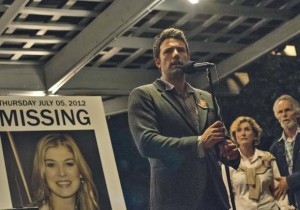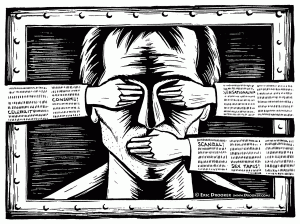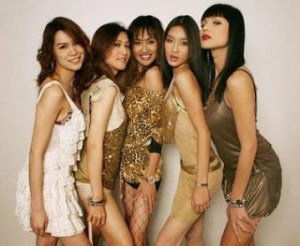In “Network Literacy: The New Path to Knowledge” (2007), one of Adrian Miles’ key points is that network media is constantly and rapidly changing and flowing as the day to day conditions of knowledge production and dissemination evolve. What underlies these changes is technological innovation, economic development and public need. Walker (2005) gives the definition of Network literacy. It means linking to what other people have written and inviting comments from others, it means understanding a kind of writing that is a social, collaborative process rather than an act of an individual in solitary.
Network literacy offers the public an opportunity to work with in a communication system which facilities open and transparent sharing through online devices. The purpose of this is to strengthen knowledge and information flow. Miles (2007) suggests Network literacy is an applied knowing through doing. In other words, the user accesses, collates and builds content and knowledge, equally, and ‘is a peer in the networks’.
 The world has changed a lot in the past 10 years. The rapid development of new technology and the landscaping of the online world has changed the way we work and the way we live. The last five years have seen the rise of social media, such as Twitter, Facebook and Weibo. This phenomenon takes elements of the old Geocities personal home page discussion, blogs and dating sites, mashes them together and produces a place where people can advertise their social lives, reconnect with friends and organize events. According to the research from STATISTIC BRAIN, Facebook is the largest online social media founded in 2004. In 2008, Facebook had 100 million users and as of March 2013 has 1.11 billion. Social media has rapidly become an undeniable part of everyday life.(http://www.statisticbrain.com/facebook-statistics/).
The world has changed a lot in the past 10 years. The rapid development of new technology and the landscaping of the online world has changed the way we work and the way we live. The last five years have seen the rise of social media, such as Twitter, Facebook and Weibo. This phenomenon takes elements of the old Geocities personal home page discussion, blogs and dating sites, mashes them together and produces a place where people can advertise their social lives, reconnect with friends and organize events. According to the research from STATISTIC BRAIN, Facebook is the largest online social media founded in 2004. In 2008, Facebook had 100 million users and as of March 2013 has 1.11 billion. Social media has rapidly become an undeniable part of everyday life.(http://www.statisticbrain.com/facebook-statistics/).
 I wish to focus on how public need is driving network literacy changes. “High Speed” is the new word to describe our lives. We want fast food, fast cars and, most importantly, fast internet connection. It is the reason why social media has rapid development because network literacy provides all the information we can live with and make our life be easier. For example, if we don’t have time to meet the life mate in the real world because of busy work, we can use those dating apps, like RSVP (Australia’s No1 dating site), through answering different questions to find people we share the same habits in order to find someone we may like or use social media’s location function to find someone nearby. (http://www.rsvp.com.au/). For satisfying people needs for the high speed life, there are many other social networking tools occurring, such as Facebook, Twitter, MySpace and Linkedin. LinkedIn is sometimes described as a “social networking service for adults”. It’s a very useful tool for quickly informing people about your professional experiences, skills and interests. We also can use LinkedIn to conveniently network with others who have similar backgrounds and interests. People can join Facebook to share information about themselves that tends to be rather informal. A Facebook post is a powerful means for the user to establish relationships with friends by sharing their opinions or interesting experiences happening everyday even if they barely have time chat face to face.
I wish to focus on how public need is driving network literacy changes. “High Speed” is the new word to describe our lives. We want fast food, fast cars and, most importantly, fast internet connection. It is the reason why social media has rapid development because network literacy provides all the information we can live with and make our life be easier. For example, if we don’t have time to meet the life mate in the real world because of busy work, we can use those dating apps, like RSVP (Australia’s No1 dating site), through answering different questions to find people we share the same habits in order to find someone we may like or use social media’s location function to find someone nearby. (http://www.rsvp.com.au/). For satisfying people needs for the high speed life, there are many other social networking tools occurring, such as Facebook, Twitter, MySpace and Linkedin. LinkedIn is sometimes described as a “social networking service for adults”. It’s a very useful tool for quickly informing people about your professional experiences, skills and interests. We also can use LinkedIn to conveniently network with others who have similar backgrounds and interests. People can join Facebook to share information about themselves that tends to be rather informal. A Facebook post is a powerful means for the user to establish relationships with friends by sharing their opinions or interesting experiences happening everyday even if they barely have time chat face to face.
Participating in social media is rapidly becoming a necessity for businesses. Recent research has shown that sales people using social media work better than those who don’t. People may mention Facebook and LinkedIn in the same breath, however, while seemingly equal, there’s a significant difference. When you dig into number of users and the features of each site, you begin to see major differences. Linkedin is for professional communication and users tend to be white-collar college graduates whereas Facebook tends to be for social communication. It is designed to encourage people to share and communicate. However, because of Facebook’s popularity with young users of social media, many businesses are using this forum to advertise or inform about their products, ideas etc. Many businesses now have their own Facebook pages to engage influence. Moreover, network literacy gives a good opportunity for those individual businesses to have a platform to promote their business. Holmes (2012) suggests that digital age demonstrates an overview of the level of involvement that each interviewee claimed to have while working with specific online platforms to promote their business.
Video (profit on Facebook)
Facebook vs. LinkedIn: Stats and Features
| Members | More than 1 billion | More than 200 million |
| Monthly visitors | 960 million | 97 million |
| Gender of visitors | 43% male 57% female |
50% male 50% female |
| Age of visitor | 13-17 years: 7% 18-34 years: 26% 35+ years: 66% |
13-17 years: 1% 18-34 years: 19% 35+ years: 80% |
| Site features | Photo uploading Private message sending Public message posting Video uploading |
Photo uploading Private message sending – Video uploading |
| Networking features | Event/activity invites File sharing Groups Instant messaging Multiuser games Private messaging Real-time updates from other users |
Event/activity invites File sharing Groups – – – Real-time updates from other users |
| Search features | Filtering Live search results Search suggestions |
Filtering Live search results – |
| Search options | e-mail address Gender Interests Keywords Location Name Online now School |
e-mail address – Interests Keywords – Name – – |
(http://www.accountingweb.com/article/using-social-media-business-part-1-facebook-vs-linkedin/222491)
According to the survey from ACMA (Australian Communications & Media Authority), the 18-24 and 25-34 age groups are the most common “heaivy” internet users, with 62 persent of each bracket going online more than eight times a week (65 and over was the lowest). Obviously, the young people is the main consumer at network media area. Some of my courses have Facebook home pages as well, allowing students to follow updating course information because they are familiar with those network social media. The course of “Network Media” has own blog page, which is managed by the lecturer and operated by students. So we can post our own thoughts related to the weekly topic on the blog and link other students’ blog and view articles what they wrote previously. (www.mediafactory.com.au) This will give us a huge sense of achievement and inspire the other students in the class to work harder. The education software Blackboard are becoming so dominant among students that it is hard to imagine any professor or student making it through week or even a day without them. Consider a recent survey conducted by the Babson Survey Research Group in collaboration with New Marketing Labs. Drawing from almost 1000 college and university faculty members nationwide, the survey revealed that more than 80 percent use social media in some capacity. And social media get used in the class in various ways. The survey notes that 30 percent use social networks to communicate with their students while more than 52 percent use online video, podcasts, and blogs during tutorial time.
Video (Using Social Media Effectively in Higher Education)
This phenomenon is showing that how social media popularity among the young people. As a future  professional media maker, I need to know how to use network literacy to promote my media works. Once a viewer click “like”, it means that more people will see my video. The Hunger Game promotion is a good example using social media marketing to bring fiction to life. The movie company offered fans a chance to win tickets through a Facebook app before the movie on. You could also use this app to buy tickets for yourself and your family. After the movie on, continuing with its overnight fame from its big hit, the company launched a Facebook campaign that allowed fans to register online as a citizen of the make-believe-world. You would also be able to share your profile images across your social sites, and interact with other fans. The movie company use network literacy to promote the movie and keep the hit for the Hunger Game sequel preparation.
professional media maker, I need to know how to use network literacy to promote my media works. Once a viewer click “like”, it means that more people will see my video. The Hunger Game promotion is a good example using social media marketing to bring fiction to life. The movie company offered fans a chance to win tickets through a Facebook app before the movie on. You could also use this app to buy tickets for yourself and your family. After the movie on, continuing with its overnight fame from its big hit, the company launched a Facebook campaign that allowed fans to register online as a citizen of the make-believe-world. You would also be able to share your profile images across your social sites, and interact with other fans. The movie company use network literacy to promote the movie and keep the hit for the Hunger Game sequel preparation.
Social media has rapidly become an undeniable part of everyday life. Hundreds of social networking sites exist to support a wide variety of interests around the world, according to a 2007 article in the “Journal of Computer-Mediated Communication.” These social networking sites connect strangers and friends together, and incorporate a wide variety of communication tools such as blogging, mobile connectivity and photos or videos shared with other users. Many of these social networking sites encourage users to upload personal information, multimedia files and photos that can be shared with others. Seventy percent of teens use social networking sites. In the explosion of recently developed internet tools, internet users are moving from mere consumers of information to producers as well. No matter who make a video can upload it online, allowed other people watch it. Network literacy crosses country’s boundary, overcoming language barrier, and extends the world. The Korean song “Gangnam style” is the most watched video ever on Youtube. The singer PSY has became popular around the world. The song goes all over the world through Facebook, Youtube, twitter etc.
 Youth are among the first to adopt new technologies which they grow up with. They create profiles and upload their thoughts and images of themselves and their friends. They make contact with real-life friends and with new people they “meet” online. As I know, some teenagers count their SM “friends” in the hundreds. Most of them have not met each other in the real world. It seems teenagers tend to make online friends hiding behind computer screen rather than go outdoor talking face to face. Moreover, youth may have technology skills but they often do not have general wisdom to conduct themselves on a public forum. They do not foresee the consequence of their online posts. Hazard such as bullies and online violence do exist. How to keep a healthy network literacy communication environment is a big challenge for now.
Youth are among the first to adopt new technologies which they grow up with. They create profiles and upload their thoughts and images of themselves and their friends. They make contact with real-life friends and with new people they “meet” online. As I know, some teenagers count their SM “friends” in the hundreds. Most of them have not met each other in the real world. It seems teenagers tend to make online friends hiding behind computer screen rather than go outdoor talking face to face. Moreover, youth may have technology skills but they often do not have general wisdom to conduct themselves on a public forum. They do not foresee the consequence of their online posts. Hazard such as bullies and online violence do exist. How to keep a healthy network literacy communication environment is a big challenge for now.
It is important to learn how to distinguish what is real and what is not for internet users, especially for  teenager users. It’s no secret that Aimi Eguchi, as a new member in AKB 48 (the popular Japanese singing group) is beautiful and talented. But she is not an exactly human. The manger of AKB 48 posted a video on its website (http://www.glico.co.jp/ice/icenomi/index.html) showing that how Eguchi had been created using the eyebrows, nose, lips and mouth of other girls. Her face was molded from the features of six AKB48 members; a seventh girl provided Eguchi’s voice. AKB48 even created a profile for Eguchi on their website, which says she was born in 1995 and is from Saitama, near Tokyo. The group’s producer and founder, Yasushi Akimoto, reportedly raved about Eguchi, saying she would be “the heroine of the new age.” Fans began speculating about her last week when the mysterious new pop star suddenly appeared on the cover of the Japanese magazine Weekly Playboy. TokyoHive, a Japanese culture blog, reported that “everyone” was eager to check out the pictures “in order to find out all the secrets behind her beauty.” Eguchi even successfully hold a personal concert in Japan because her fame has been brought through social media promotion. It is a trend that intelligent human exists in the future. For a future film producer, I consider that employing a not real person playing in my video would be a good choice, rather than a real actor/actress for controlling budget.
teenager users. It’s no secret that Aimi Eguchi, as a new member in AKB 48 (the popular Japanese singing group) is beautiful and talented. But she is not an exactly human. The manger of AKB 48 posted a video on its website (http://www.glico.co.jp/ice/icenomi/index.html) showing that how Eguchi had been created using the eyebrows, nose, lips and mouth of other girls. Her face was molded from the features of six AKB48 members; a seventh girl provided Eguchi’s voice. AKB48 even created a profile for Eguchi on their website, which says she was born in 1995 and is from Saitama, near Tokyo. The group’s producer and founder, Yasushi Akimoto, reportedly raved about Eguchi, saying she would be “the heroine of the new age.” Fans began speculating about her last week when the mysterious new pop star suddenly appeared on the cover of the Japanese magazine Weekly Playboy. TokyoHive, a Japanese culture blog, reported that “everyone” was eager to check out the pictures “in order to find out all the secrets behind her beauty.” Eguchi even successfully hold a personal concert in Japan because her fame has been brought through social media promotion. It is a trend that intelligent human exists in the future. For a future film producer, I consider that employing a not real person playing in my video would be a good choice, rather than a real actor/actress for controlling budget.
<https://www.mediafactory.org.au/yinuo-song/2014/10/17/93/>
According to an article on the U.S. Department of Labor website, a recent report by PEW <http://news.bbc.co.uk/2/hi/technology/8233908.stm> found that social network media may be encouraging people to get involved in politics. Facebook, Twitter and Weibo, etc have empowered people.
We only need to look at Weibo’s impact on the China in 2010. The Nobel Committee awarded a jailed Chinese liberal dissident Liu Xiaobo the 2010 Peace Prize for his non-violent struggle for fundamental human rights in China. TV, Radio and Newspaper speak in one voice when facing Nobel Committee against to human rights, stand the same line with government because of censorship. The Chinese government intended to block the news in order keep society stable as it did previously. However, the thing gradually went out of the government’s control. The news of Liu’s Nobel Award was shared extensively through Weibo and created a record of the highest number of re-posts in one day. Weibo, or other social medias in China, indeed affected Chinese media freedom. People talk, discuss and look forward to the government’s reaction, which is a kind of public observation. As for me, living in China, I had not known Mr Liu and was unfamiliar with what he did before scanning Weibo top 10 hot topics in 2010. Most Chinese were in the same condition as same as me. Although the government used a variety of ways to block “Nobel Prize”, such as closing Weibo users’ accounts, setting firewall and employing authorized persons ( called fifty cents party), the news still spread across China fast.
< https://www.mediafactory.org.au/yinuo-song/2014/09/19/liu-xiaobo-case-study/>
Video (Liu Xiao’s case)
“Fifty cents party” is a new word for Chinese internet users. People called cyber police as “Fifty cent party” for undercover Internet commentators that the Chinese government paid to influence public opinion. “Fifty cents party” refers to the alleged pay the Internet commentators received per post. Currently, the term describes anyone who actively and publicly posts opinions online that defend or support Chinese government policy. In China, those cyber police report dangerous contents to authorities. They track IP address where those contents are posted from and then know who posted it. They also operate outside China, according to an American journalist who received an aggressive communication from China’s Fifty cents party because the commentator left a dozen anti Chinese government comments to her blog. They questioned her data as whole and did not agree with her views to China. It reminds me that network world is not security. People with technology skills can hack my computer or track my IP address and then know where I am. Doubtlessly, internet users are in danger in this high tech-age. How to protect personal security and avoid information leakage have been problems need to notice.
government policy. In China, those cyber police report dangerous contents to authorities. They track IP address where those contents are posted from and then know who posted it. They also operate outside China, according to an American journalist who received an aggressive communication from China’s Fifty cents party because the commentator left a dozen anti Chinese government comments to her blog. They questioned her data as whole and did not agree with her views to China. It reminds me that network world is not security. People with technology skills can hack my computer or track my IP address and then know where I am. Doubtlessly, internet users are in danger in this high tech-age. How to protect personal security and avoid information leakage have been problems need to notice.
<https://www.mediafactory.org.au/yinuo-song/2014/10/03/network-dangerous/>
<https://www.mediafactory.org.au/yinuo-song/2014/10/02/who-is-the-dummy/>
Recently, Islamic terrorists declare their terrorist attacks through Facebook to Australian government. Such a political participation of the social use, to some extent the information is spreading quickly, but for the public, will it cause the unnecessary panic?
The public need drives social media changes. However, more important, for a future media maker, we create client need rather than follow it. We can anticipate what client needs and future development from social network media rapid changes. For Marketers, It’s really hard to design products by focus groups. A lot of times, people don’t know what they want until you show it to them. The great success of Iphone is because of Steve Jobs because he understood that when you create a new product, the public can’t imagine it or their need for it until it exists. From this perspective, marketers and product developers must understand how to meet consumer needs before they can articulate them. So, for a future media maker, rapid change of social media means not only keeping up but also creating the change.
<https://www.mediafactory.org.au/yinuo-song/2014/08/26/iphone-tracks-whereever-you-go-online-information-leakage/>
Consider the significant of network literacy, we can anticipate what clients need and future development and use social network media to create public need. Meanwhile, Network literacy indeed affects our daily social and professional lives.
Video(Slow Tech)
Word count 2516
References
Adrian M 2007, “Network Literacy:The New Path to Knowledge, pp 24-30
Andrew H, 2008, “Network World Canada”, pp 11
Blankenship M, 2010, How Social Media Can and Should Impact Higher Education’, pp 11-12
Chiu, C, 2012, “Understanding Social Media in China”, pp 30-35
Greenwood Beth, “How Can Social Network Sites Affect Teens”
<http://everydaylife.globalpost.com/can-social-network-sites-affect-teens-13459.html>
Hall M, 2014, “Facebook”
<http://www.britannica.com/EBchecked/topic/1366111/Facebook>
Haley U, 2010, “China’s Fifty Cent Party For Internet Propaganda”
<http://www.huffingtonpost.com/usha-haley/chinas-fifty-cent-party-f_1_b_749989.html>
Laurie M, 2010, “How Social Media Has Changed Us”
< http://mashable.com/2010/01/07/social-media-changed-us/>
Sunder S 2013, “Journal of Computer-Mediated Communication”, The PennsylvaniaStateUniversity, pp 65-70
Kubey RW, “Media Literacy in the Information Age: Current perspective,” pp403
Images
<http://www.webperuhotel.com/wp-content/uploads/2014/08/FACE-TW-YOUTUBE.jpg>
<http://siliconangle.com/files/2012/03/hunger-games-facebook-300×225.jpg>
<http://praescientanalytics.com/wp-content/uploads/2013/09/50hands-290×190.gif>
<http://images.dailytech.com/nimage/12310_6a00d83451c3ab69e200e54f2bde1d8834-640wi.jpg>
<http://wrongwroks.files.wordpress.com/2011/07/48.jpg>
Blogs
https://www.mediafactory.org.au/yinuo-song/








